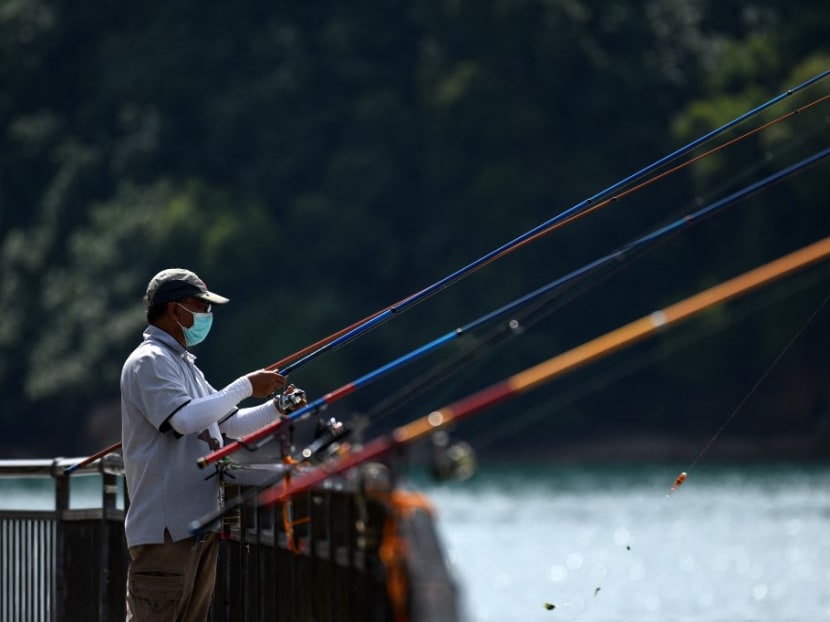Go further to weed out litter, overfishing as more people turn to fishing during pandemic
Ever since the outbreak of the Covid-19 pandemic, more Singaporeans have turned to fishing as a hobby to occupy themselves and get out of the house.

To curb overfishing and litter, a TODAY reader suggests the authorities tie up with local fishing YouTubers, administrators of Facebook and Instagram fishing communities, and fishing-tackle shop owners to raise awareness of good practices.
Ever since the outbreak of the Covid-19 pandemic, more Singaporeans have turned to fishing as a hobby to occupy themselves and get out of the house.
With younger, inexperienced anglers increasing in number, there are concerns about overfishing and litter.
Not too long ago, Mr Eugene Heng, the founder of Waterways Watch Society — a non-profit that organises weekly clean-ups at waterways — told news network CNA that he noticed a growing proportion of fishing litter, such as nets, lines and hooks, during the clean-ups.
Beyond the pollution of these spaces, such litter also harms wildlife, as evidenced by reports of otter deaths and injuries caused by fishing hooks that have surfaced over the years.
National water agency PUB and the National Parks Board (NParks) have taken steps to mitigate the impact of such practices.
PUB has set up fishing litter bins, installed cameras and imposed fines of up to S$3,000.
NParks has also placed educational signboards at fishing hot spots.
Even so, there are limitations to these efforts.
Firstly, enforcement is an issue as the agencies lack manpower to police and catch every litterbug.
Even with cameras, these culprits can easily avoid getting caught, leaving them undeterred.
Secondly, the current educational efforts have limited reach. Signboards serve only to educate those nearby who have the curiosity to look. Otherwise, these signboards are easily overlooked and thus ineffective.
To overcome these issues, I would like to put forward a few ideas.
Recognising that each fishing site typically has a regular group of anglers, we could explore recruiting these anglers as sustainable-fishing ambassadors.
Groups such as Marine Stewards Singapore can equip and educate them to perform the role of advocates who can speak eloquently to their fellow anglers about sustainable-fishing practices.
In addition to increasing compliance, this softer, more personal approach is geared towards the long term, as it focuses on building a fishing culture that is mindful of the environment.
To increase the reach of educational efforts, NParks can consider using non-conventional methods, such as tying up with local fishing YouTubers, administrators of fishing communities on social networks Facebook and Instagram, and even fishing-tackle shop owners.
Through these channels, a wider audience can be reached as these spaces are where anglers are sure to be.
There is another long-term benefit for these online spaces when younger, inexperienced anglers gain awareness of these practices early in their fishing journey, which they will carry with them as they fish more.
As an angler myself, it is my wish to see greater responsibility in Singapore’s fishing culture.
Have views on this issue or a news topic you care about? Send your letter to voices [at] mediacorp.com.sg with your full name, address and phone number.






